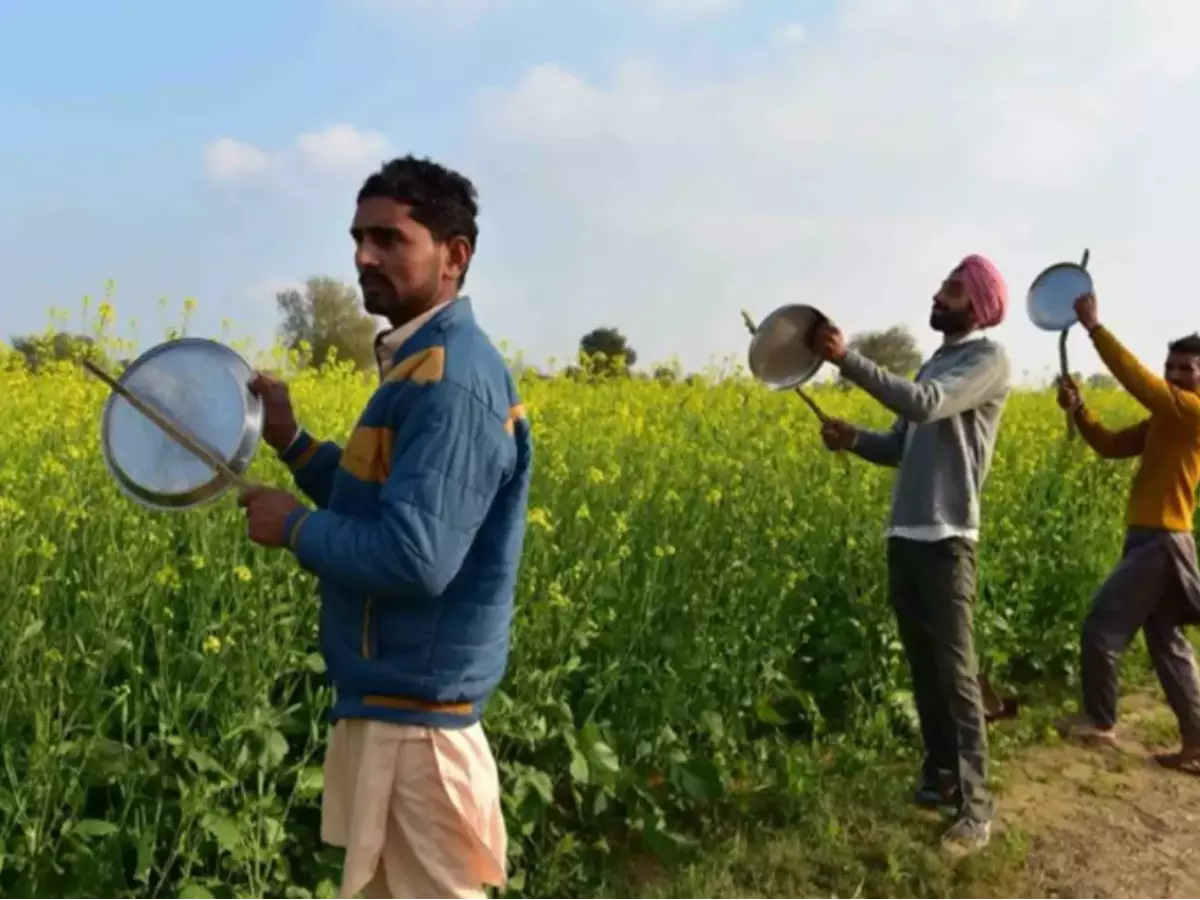UP: How Loud Music From A ¡®DJ Vehicle' Apparently Helped Scare Away Army Of Locusts
A large swarm of locusts entered the Indian states of Rajasthan Punjab Haryana Uttar Pradesh and Madhya Pradesh last week. Experts say this is the most severe locust attack in nearly 26 years which threatens to destroy crops and disrupt food security in the country.

Apart from the coronavirus pandemic, there's another serious issue causing worry for farmers across north India. It's a new wave of locust attacks, something also predicted to be the worst India has seen in almost three decades.
 AP
AP
According to experts, this is the most severe locust attack in nearly 26 years which threatens to destroy crops and disrupt food security in the country.
Now, as swarms of locusts enter Rajasthan's Jaipur and parts of Maharashtra and Delhi, farmers in these areas have devised unique ways to fight off these pests.
More recently, UP police officer Rahul Shrivastava, posted in Jhansi, shared a video which shows a vehicle fitted with loudspeakers--locally known as a ¡®DJ vehicle' used for playing music during wedding processions--attempting to scare away locusts.
???? ?????? ??? ???? ?? ???? ?? ???? ????? ?????? ?? ????? ??? ?? ????? ???? ?? ?
¡ª RAHUL SRIVASTAV (@upcoprahul) May 27, 2020
??? ???? ????? ??? !
?? ???? ?? ????? ????? ???? ??? ?? ???? ?? ??? ???? ??? ?#DiscJockey #Locustswarm #locustswarms #Locusts #Locustsattack #LocustInvasion #LocustSwarmsAttack pic.twitter.com/zUcpYiJTGb
The idea was to use loud music to distract the locusts thereby scaring them away. "DJ's (disc jockeys) are not only for singing and dancing... they are also effective in scaring away armies of locusts. Everyone sees a new morning... You can also bang utensils or make noise to scare them away," the tweet posted in Hindi reads.
 Twitter/TOI
Twitter/TOI
"Locusts can be scared away by producing noise by beating of drums and utensils. Chemicals, especially Chlorpyriphos 20 EC diluted in water, can be sprinkled on crops. There is a possibility of great damage to the crops due to locusts. The Agriculture Department and administration is keeping an eye on the issue," agriculture scientist Jainendra Kanaujia was quoted as saying by news agency ANI.
The desert locust is a short-horned grasshopper known to devour everything in its path, threatening food supply and economic growth. They mostly enter the Indian subcontinent around June and July.
This time desert locust attack is severe. They have arrived earlier, in huge numbers & now reached till Panna in MP. The changing climate conditions are linked with locust growth in east Africa. The swarms has potential of eating everything & destroy the crops. This from Panna. pic.twitter.com/8aqLa8lA4O
¡ª Parveen Kaswan, IFS (@ParveenKaswan) May 26, 2020
Last week, a large swarm of locusts entered the Indian states of Rajasthan, Punjab, Haryana, Uttar Pradesh and Madhya Pradesh, a spokesperson of the Union Ministry of Environment, Forest and Climate Change said. Locusts reportedly also entered parts of the drought-prone Vidarbha region in Maharashtra.
The locusts, which bred and matured in Iran and Pakistan's Balochistan, are one of the oldest migratory pests that belong to species of grasshoppers. Locusts swarms can fly up to 150 km in a day and each locust can eat around two grams of crop i.e. equivalent to its own weight.
